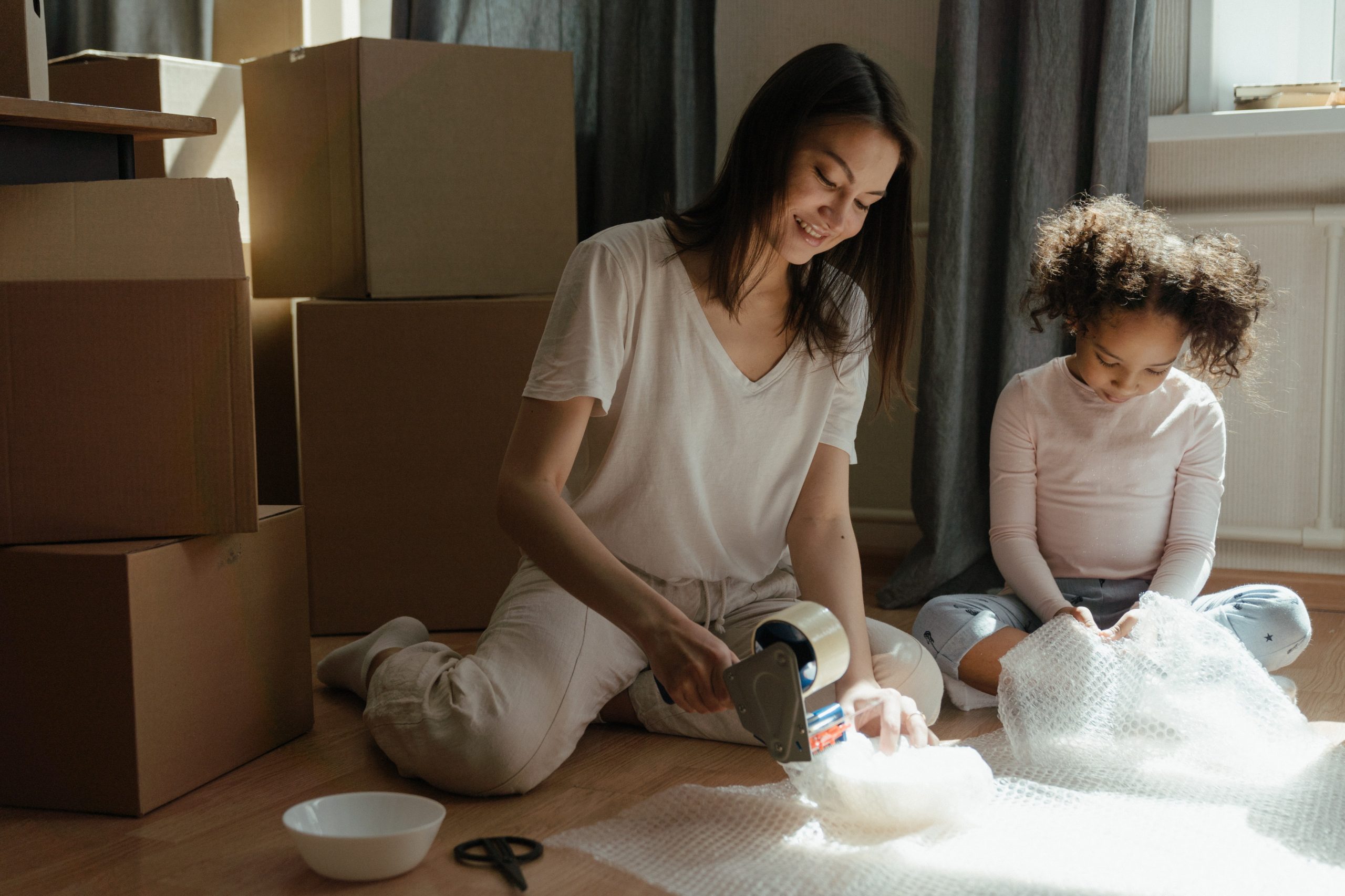
In case you are reading this article, it’s most likely because you’ve searched on the internet for what you can and can’t store in a self-storage unit.
Most homeowners start thinking about investing in self-storage, especially when moving houses or decluttering their homes. Are you one of them? In case you are, check out our blog on the top ten tips to declutter your home for some handy tips.
Whatever the reason you find yourself looking to rent a storage unit, knowing what can and can’t go in it is essential. It’s always best to be well-informed, so knowing the rules of storage units will save you a headache further down the line.
Whether you are confident about what is suitable for a storage unit, or you need a full list of do’s and don’ts, we have what you need. There are indeed a few rules and exceptions of what you can and can’t store in storage units, so let’s find them out!
5 things you CAN’T store in self-storage units
Let’s start with the items that you can’t store in a self-storage facility, as this list is far more exciting and essential to know. Of course, some things may seen obvious, but it’s always best to reiterate the information and make yourself fully aware.
1. Hazardous Materials
This list can get quite lengthy, but we have a simple rule. If items can catch fire or explode, they must be taken out from your inventory list! In case you don’t have one, head over to our article to find out how to create the best self-storage inventory list!
When we talk about hazardous materials, they could be:
- Propane
- Oil
- Grease
- Cleaners
- Chemicals
- Paint
- Gasoline
- Aerosols
- Fireworks
In case you are thinking of storing art supplies in self-storage units, you won’t be able to store mineral spirits or paint thinner. So, it’s always best to have a good look through everything in boxes and any items you want to store. Checking everything throughout will ensure you don’t inadvertently store something that shouldn’t be in there.
All aerosol sprays are best left behind. It includes all sorts of everyday items such as cooking sprays, hairsprays, and even nail polish remover. In terms of gardening, fertilisers and weed killers are a no-go too. Make sure none of these types of substances are left in buckets or other garden items.
Bonus tip – Before storing your items, make sure that all your lawn equipment has been thoroughly drained of any remains of gasoline or oil. And in case you are left over with a lot of unwanted hazardous materials, make sure to check with your local waste management agency to find out the best way to dispose of them.
2. Living animals, humans, or plants
We’ve heard some crazy rumours about people who used self-storage facilities for their pets to live in. And yes, you’ve guessed it, it is a pretty bad idea!
Also, placing living plants in self-storage containers will kill them, and even worse, their soil will attract moisture, leading to mildew, mould, and pests. A storage unit is not a place for any animals or homeless people to live either. Living in storage units is illegal, which means that people cannot stay in these facilities overnight.
3. Perishables
Perishable items that have an expiration date are not allowed in self-storage units, as depending on the substance, they can either be harmful or attract pests if they are expired.
If food needs to be stored in a refrigerator, it’s perishable, including meat, dairy, and any other produce. One big mistake that most people make is to store food in coolers for short periods. However, non-perishable foods can be stored in self-storage spaces, but only if they are kept in airtight containers. Lately, we’ve seen a slight rise in our customers wanting to store freeze-dried and dehydrated foods for emergency planning purposes. While these types of foods should be alright to store, remember that similar products are not ok to be stored, such as:
- Rice
- Other grains
- Boxed foods
- Powdered milk
- Flour
- Pet foods
This is simply because they can turn rancid and attract pests and rodents, which can smell even through the thinnest cereal box or plastic containers. In case you are storing canned foods, either in glass canning jars or tinned, make sure that you will check their expiration date periodically. If you notice any bacteria or moisture on your products, throw them away, and start organising your non-perishable and canned foods higher up on shelves.
4. Stolen items and illegal drugs
Believe it or not, many criminals try to store illegal items in rented storage units, and we’ve seen many people getting busted by police for being so reckless.
To put it simply, if what you are thinking to store can hurt someone, or it is illegal, then it definitely doesn’t belong in self-storage units. In case you want to store vehicles, remember that any car you store must be fully registered, insured, and in the right operable conditions. It also must be registered in the name of the person renting the self-storage unit. The most common vehicles that can get stored are:
- Boats
- RVs
- Trailers
- Motorcycles
- Cars
- Trucks
Also, it is essential to know that you will be required to show proof of vehicle registration, along with a valid driver’s license when you move into a storage unit. Having all your paperwork in order is essential when it comes to renting a container or storage yard.
5. Scented items
Scented items can attract rodents and bugs, so they should be avoided at all costs. We know that these items aren’t the typical things that you would expect to be forbidden to store, but trust us, they are!
Here’s a shortlist of the most common scented items that can’t be stored in self-storage units:
- Strong soaps
- Lotions
- Incense
- Oils
- Perfumes
- Candles
- Strong spices
- Essential oils
Alongside scented items, wet items are also a no-go! In most cases, people store things that are still wet, which means they can create mould and mildew. Stored objects must be carefully dried out beforehand, so you can avoid getting your belongings ruined by moisture.
You can do so by using pallets and shelves to keep items off the floor, as floors are the primary place where moisture can form. Another great way to avoid moisture is to add moisture absorption packets in the corners of your self-storage containers. In case the weather is bad on the day you are moving your items (and by bad, we mean raining), make sure to bring plenty of dry towels to dry off any items that can get wet. But don’t just toss those towels inside of the self-storage facility, but instead, take them back home.
5 things you CAN store in self-storage units
And now, let’s move on to the bright side by taking a look at what you can store in self-storage units.
1. Seasonal items
When the time comes to declutter your house after the holidays, self-storage facilities and unwanted seasonal items come hand in hand better than peanut butter and jelly!
A self-storage unit is ideal for storing all your Christmas decors, camping gear wardrobe, and winter gear on a rotating basis. Even better? Climate-controlled self-storage units are perfect for keeping your seasonal swap-outs.
One big mistake that people seem to make repeatedly is to store electronic holiday decorations, such as fairy lights, that are no longer functioning. Don’t do that! If something can’t be used anymore, throw it away, and buy a replacement right after the holidays. That’s when decorations get usually reduced by up to 50% or even more.
Storing broken or unusable items takes up space in the unit. So, it’s best to check everything each time before you place it back in the unit. We have some great tips in our article on how self storage can help you manage Christmas, so head over there for more info.
2. Business items
Recently, we’ve had an increasing number of businesses relying on our self-storage facilities for several reasons. Tradesman storage and units for self-employed people are extremely popular.
This is mainly because the price per square foot is much better than a warehouse or additional office space. Our business self-storage is perfect for small business owners, such as organisers, realtors, caterers, and more. We have a couple of great articles on how to utilise self storage for business use and how self storage can help you run your business from home that you might find useful to read.
3. Electronics
There are times when we must store electronics, no matter how much we usually rely on them in our daily lives. The most common electronics that can get stored in self-storage facilities are:
- TVs
- Speakers
- Stereo systems
- Printers
- Computers and laptops
- Refrigerators
- Stoves
- Microwaves
- Dryers
- Washers
- Freezers
- Toasters
- Coffee machines
- Vacuums
An important aspect to remember is that you must remove all DVDs, CDs, inkjet cartridges, and batteries before storing your electronics. All these items can get stuck or cause corrosion over time, so try to save yourself a good headache! All the appliances mentioned above can be safely stored only as long as they’ve been thoroughly cleaned and dried beforehand. Another mistake people make is leaving the devices plugged in whilst stored, or crumbs and dried-on crisps are left inside toasters, which in time can attract rodents and pests.
A pro tip from us is to keep all your appliances upright against the walls and to leave the doors slightly open. By doing so, you will allow free air movement, thus avoiding bad smells to develop over time.
4. Household goods
This is the category that contains the most stored items that can be found in self-storage units, and they include:
- Clothes
- Toys
- Bathroom items
- Kitchen items
- Books
- Antiques
- Collectables
- Art
- … and much more
Our self-storage containers are perfect for storing household items that may not frequently be in use, especially coming from garages or sheds. Students also find self-storage facilities very useful, especially when storing furniture and belongings during university breaks and holidays. This is simply because paying rent on a room or a student house is much higher than the self-storage fees. For more information, check out our blog to find the various uses of self storage for students at university.
5. Furniture
Protecting furniture in self-storage units requires a little bit of work, and it can be quite a costly decision if not taken correctly.
First of all, you must decide if you intend to keep your furniture for the long or short term. The average cost of a storage unit can significantly vary, and this is a critical aspect to consider, especially when in the middle of a move or going through a transitional time. In case climate control isn’t an option, there are many ways you can protect your furniture, even for more extended periods.
Our quick and practical tips are to:
- Clean everything thoroughly
- Disassemble everything gently
- Wrap it up completely, including the floor
- Protect glass items
- Raise furniture off the floor
- Don’t cram too much inside
Storing furniture in a self-storage unit doesn’t have to be too complicated or stressful. First of all, you need to know what self storage size you need and how to pack and label your items for storage.
At Boxpod Space, our clients can benefit from secure self-storage containers and yards in various locations throughout the UK. In case you are in need of extra storage space for your home or business, please contact us today to find out more about our flexible terms and competitive rates.

